
“Democrats legacy: A loss of more than $18.5 billion in unrealized value for American taxpayers,” the senator wrote on social media.
Wyoming Senator Cynthia Lummis sent a letter to the United States Marshals Service on Jan. 15 demanding answers for the government’s potential sale of 69,370 Bitcoin (BTC) seized in the Silk Road asset forfeiture.
Lummis characterized attempts to sell the US government’s Bitcoin holdings as a form of political spite. In an excerpt of the letter provided by Politico, the senator wrote:
The potential sale of the Silk Road BTC was given the green light after Judge Richard Seeborg denied a petition to block the asset forfeiture.

The United States government has the highest gold reserves in the world, with over 8,000 tons of the precious metal on its balance sheet.
Wyoming Senator Cynthia Lummis is advocating for the United States Treasury Department to convert a portion of its gold holdings into Bitcoin (BTC) to establish a Bitcoin strategic reserve.
Lummis told Bloomberg that by converting gold certificates held by the US Treasury into Bitcoin, the immediate effect on the US government's balance sheet would remain "neutral," as opposed to spending approximately $90 billion to purchase the Bitcoin at current market prices.
The US Senator previously argued that the US Treasury should convert a portion of its assets to purchase Bitcoin for the strategic reserve, but never specified which of the Treasury's holdings should be sold to acquire more of the digital currency.

The pro-crypto Senator introduced the Bitcoin Reserve Bill while declaring "this is the solution, this is the answer, this is our Louisiana purchase moment, thank you Bitcoin!"
United States Senator Cynthia Lummis has introduced a bill proposing that the US government buy 5% of the world’s Bitcoin supply and hold it for at least 20 years.
“It can be used for one purpose, to reduce our debt,” Lummis declared during her keynote speech at the Bitcoin 2024 Conference on July 27 in Nashville, Tennessee.
Lummis explained that, if passed, the plan will take place over five years with the aim of the US government acquiring one million Bitcoin (BTC), roughly 5% of the total supply of 21 million Bitcoin.
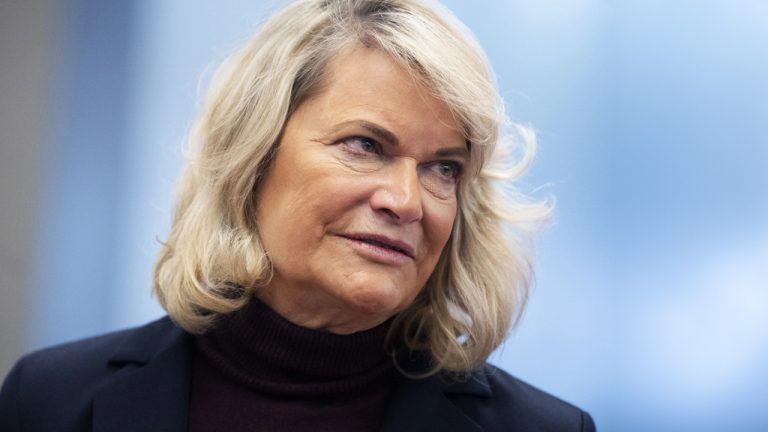 Senator Cynthia Lummis of Wyoming is preparing to introduce new legislation that would require the Federal Reserve to hold bitcoin as a strategic reserve asset, as reported by Fox Business News. According to three anonymous individuals with knowledge of the matter, the bill is set to be announced at the annual Bitcoin Conference in Nashville, […]
Senator Cynthia Lummis of Wyoming is preparing to introduce new legislation that would require the Federal Reserve to hold bitcoin as a strategic reserve asset, as reported by Fox Business News. According to three anonymous individuals with knowledge of the matter, the bill is set to be announced at the annual Bitcoin Conference in Nashville, […] Crypto is gaining momentum among U.S. lawmakers. Senator Cynthia Lummis stated: “We are building a pro-crypto army in Congress.” This declaration came shortly after the House of Representatives passed the landmark Financial Innovation and Technology for the 21st Century Act (FIT21) crypto bill, despite opposition from the White House and SEC Chairman Gary Gensler. ‘We […]
Crypto is gaining momentum among U.S. lawmakers. Senator Cynthia Lummis stated: “We are building a pro-crypto army in Congress.” This declaration came shortly after the House of Representatives passed the landmark Financial Innovation and Technology for the 21st Century Act (FIT21) crypto bill, despite opposition from the White House and SEC Chairman Gary Gensler. ‘We […]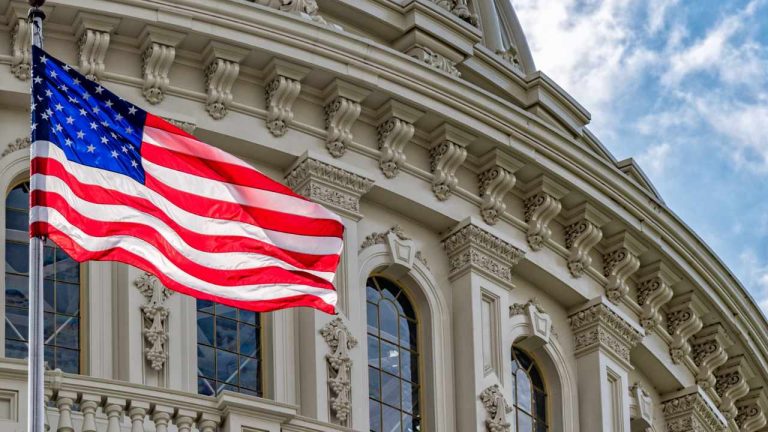 The U.S. Congress has passed its first standalone crypto legislation, which aims to overturn the controversial U.S. Securities and Exchange Commission (SEC)’s SAB 121 rules regarding crypto assets. However, President Joe Biden has threatened to veto this decision, citing concerns about financial stability and market uncertainty. ‘We Are Just Getting Started’ In a historic move, […]
The U.S. Congress has passed its first standalone crypto legislation, which aims to overturn the controversial U.S. Securities and Exchange Commission (SEC)’s SAB 121 rules regarding crypto assets. However, President Joe Biden has threatened to veto this decision, citing concerns about financial stability and market uncertainty. ‘We Are Just Getting Started’ In a historic move, […]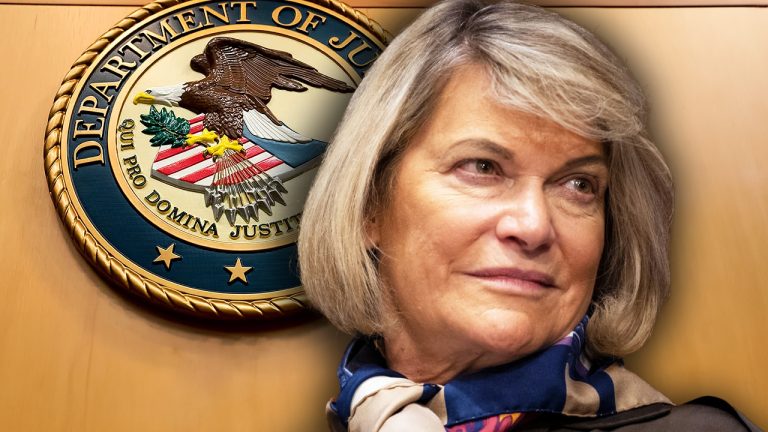 Wyoming’s Republican Senator Cynthia Lummis has responded to the Department of Justice’s (DOJ) latest argument regarding non-custodial software. Lummis’s remarks follow the DOJ’s reply brief on the indictment against Tornado Cash developer Roman Storm’s motion to dismiss. Senator Lummis Questions DOJ’s Non-Custodial Wallet Stance, Cites Legal Misinterpretations Senator Cynthia Lummis, a staunch advocate of cryptocurrency, […]
Wyoming’s Republican Senator Cynthia Lummis has responded to the Department of Justice’s (DOJ) latest argument regarding non-custodial software. Lummis’s remarks follow the DOJ’s reply brief on the indictment against Tornado Cash developer Roman Storm’s motion to dismiss. Senator Lummis Questions DOJ’s Non-Custodial Wallet Stance, Cites Legal Misinterpretations Senator Cynthia Lummis, a staunch advocate of cryptocurrency, […]
Senator Lummis argued that the SEC is attempting to “circumvent the political process” by establishing itself as the main authority on crypto.
Crypto-friendly Senator Cynthia Lummis has filed an Amicus Brief supporting Coinbase’s motion to dismiss the U.S. Securities and Exchange Commission's lawsuit against the firm.
An Amicus Brief is a document filed in court by a party that is not directly involved with the related case. They are generally used to add supporting arguments to one side of the lawsuit, and emphasize how the case will have a broader impact beyond the involved parties.
As per the Aug. 11 filing with the U.S. District Court for the Southern District of New York, Lummis stressed that “this is no run-of-the-mill enforcement case.”
The Senator asserted that with its lawsuit against Coinbase over alleged securities violations, the SEC is pushing to obtain “primary influence” over the crypto sector at a time in which regulation and other factors are still “under active consideration by Congress and multiple agencies.”
“The SEC brings this enforcement action in the midst of debates in the halls of Congress and around the world about how crypto assets should be regulated. The Constitution empowers Congress—not the SEC—to legislate in such an area of profound economic and political significance.”
“Although the SEC seeks broad authority over crypto asset markets, most legislative proposals in Congress would instead grant much of that authority to other agencies. Unsatisfied, the SEC seeks to circumvent the political process to commandeer that authority for itself,” she added.
Senator Cynthia Lummis (R. WY) just filed an Amicus Brief supporting @Coinbase's motion to dismiss the SEC's complaint.@SenLummis is Co-Sponsor of the Lummis-Gillibrand crypto regulation bill.
— MetaLawMan (@MetaLawMan) August 11, 2023
Sen. Lummis' brief argues that:
1. Congress has not granted the SEC authority to…
Coinbase filed a motion to dismiss on Aug. 4, arguing that the SEC had “violated due process, abused its discretion, and abandoned its own earlier interpretations of the securities laws,” by asserting authority over the exchange.
In the court filing, Lummis went on to argue that the SEC has been overstepping its authority by claiming that nearly all crypto assets are securities, as she questioned the agency's supposed regulation-by-enforcement approach, or what she described as an attempt to “legislate by enforcement.”
“The SEC’s attempt to shoehorn an entire new class of assets into the existing definition of a ‘security,’ and thereby add to the definition enumerated by Congress, exceeds the SEC’s authority, encroaches on Congress’s lawmaking, and contravenes the separation of powers. The SEC cannot legislate by enforcement.”
Related: SEC decision on Bitcoin ETFs won’t leave out Wall Street giants
Lummis is not alone in filing an Amicus Brief supporting Coinbase’s motion to dismiss.
On Aug. 11, crypto advocacy groups including the Blockchain Association, Crypto Council for Innovation, Chamber of Progress and Consumer Tech Association also submitted a joint filing.
In an X (Twitter) thread announcing the move, the Blockchain Association’s senior counsel Marisa Tashman echoed Lummis’ comments that the “SEC's regulatory authority extends only to what Congress granted it,” as she highlighted the risks of the SEC’s approach to the sector:
“The SEC's interpretation threatens to sweep in many non-security assets - this can't be what Congress intended when it granted the SEC authority to regulate securities.”
“The SEC takes the position that nearly all digital assets sold on the secondary market are investment contracts under the federal securities laws. But, these transactions involve no ongoing contractual obligations. The SEC's position is wrong,” she added.
1/ @BlockchainAssn and @crypto_council filed a brief with @ProgressChamber and @CTATech supporting @coinbase against the SEC.
— Marisa Tashman Coppel (@MTCoppel) August 11, 2023
We explain why the major questions doctrine precludes @SECGov from enforcing their interpretation of "investment contract." https://t.co/3JohzZK2lW pic.twitter.com/SrghLHpfmA
Magazine: Crypto regulation — Does SEC Chair Gary Gensler have the final say?
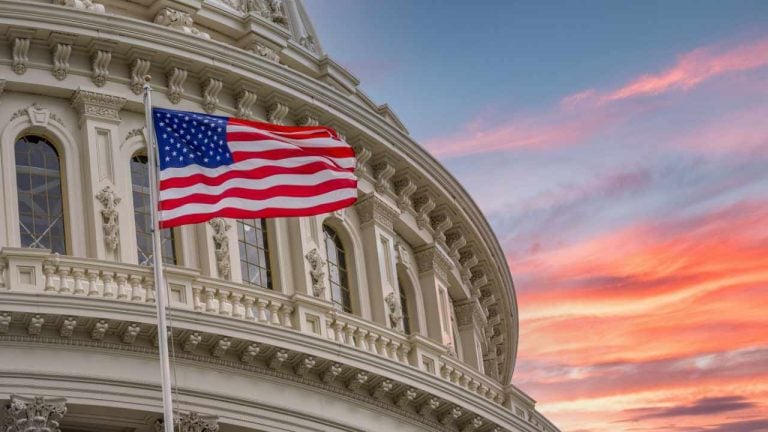 U.S. Senator Cynthia Lummis believes that the FTX bankruptcy wouldn’t have happened under the Lummis-Gillibrand crypto bill. She stressed: “It’s clearer now than ever before that we need comprehensive regulation in the digital asset space.” Senator Lummis Explains How Her Crypto Bill Would Prevent the FTX Catastrophe U.S. Senator Cynthia Lummis (R-WY) explained in a […]
U.S. Senator Cynthia Lummis believes that the FTX bankruptcy wouldn’t have happened under the Lummis-Gillibrand crypto bill. She stressed: “It’s clearer now than ever before that we need comprehensive regulation in the digital asset space.” Senator Lummis Explains How Her Crypto Bill Would Prevent the FTX Catastrophe U.S. Senator Cynthia Lummis (R-WY) explained in a […]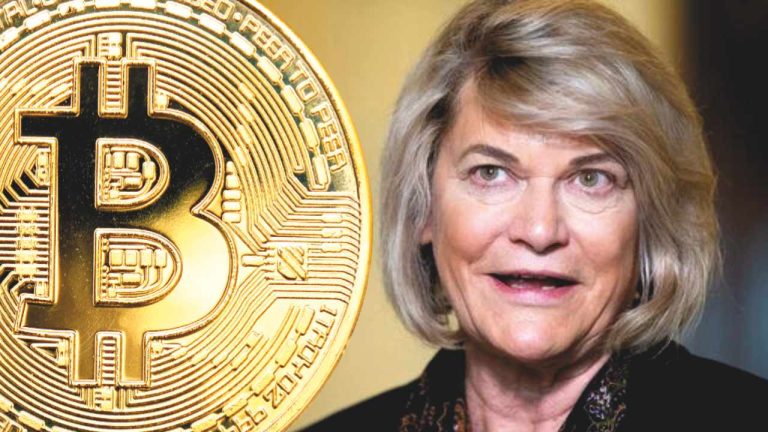 U.S. Senator Cynthia Lummis says she loves that bitcoin cannot be stopped and that governments cannot just confiscate the cryptocurrency. “It’s actually comforting to know that bitcoin is there,” she said, citing concerns about the national debt and inflation. U.S. Senator: Bitcoin Is Something Governments Cannot Take U.S. Senator Cynthia Lummis (R-WY) talked about bitcoin […]
U.S. Senator Cynthia Lummis says she loves that bitcoin cannot be stopped and that governments cannot just confiscate the cryptocurrency. “It’s actually comforting to know that bitcoin is there,” she said, citing concerns about the national debt and inflation. U.S. Senator: Bitcoin Is Something Governments Cannot Take U.S. Senator Cynthia Lummis (R-WY) talked about bitcoin […]